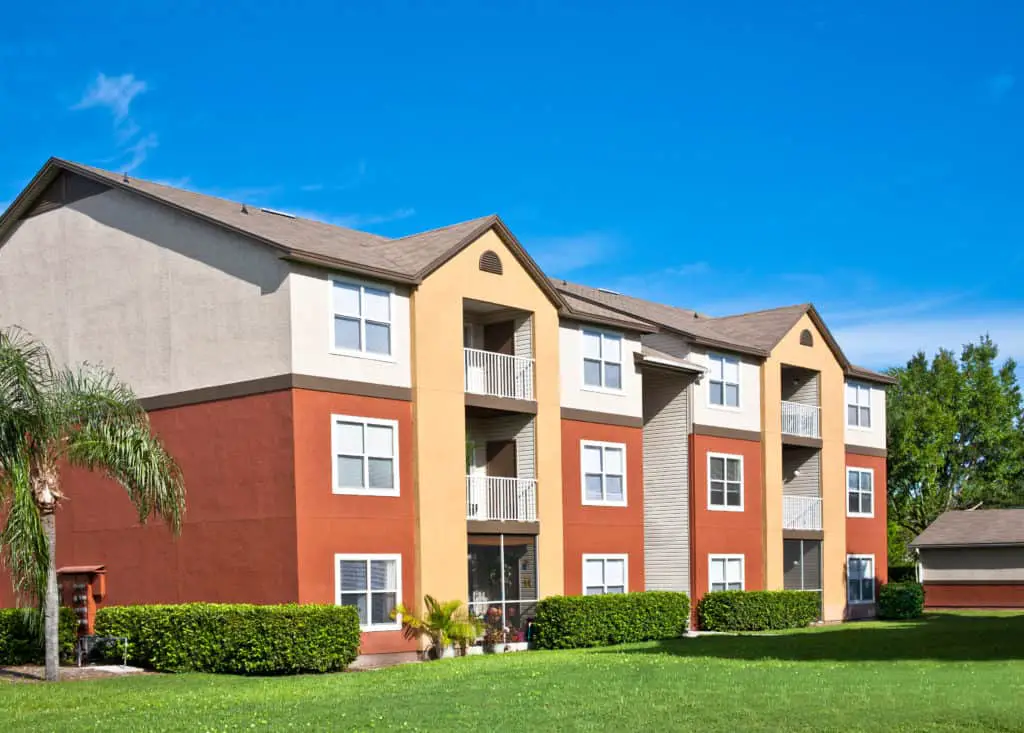
So many times, long term plans in life don’t turn out as expected. You may change jobs, get promoted, or transferred to a different town. Perhaps you started or ended, a long-term relationship that changes your living prospects. Or maybe you finished up with school early and want to move back home or start that new job.
Whatever the reason, you are needing to leave your lease agreement early and don’t want to be on the hook for many months of pay that you guaranteed you would give to your landlord. So, what do you do?
One answer can be Subletting or Subleasing. (We will use both terms interchangeably in this article as in most instances, they are used interchangeably.)
Subletting is when you rent out part or all of the apartment you are staying to another person, usually not a family member. The tenant is responsible for finding this new person to come and stay at their place. A new agreement, called a Sublease, must be agreed upon and signed by all parties before the person can obtain occupancy.
So, what do you all need to know before subletting your apartment out to someone else? What risks are involved as you when you are subletting? Do you even have to let your landlord know this is what you want to do?
We will be going through these questions and more to educate you on why and how subletting could work for you.
Does The Apartment Let You Sublet?
The very first question to ask is whether or not your landlord is going to let you sublet in the first place.
Sometimes landlords do not want their tenants subletting at all. They spend a great deal of time and money screening their tenants in the first place, and when a potential sublessor moves in, they have little or no control over who is going to be staying at their apartments. Most times, the tenant will put out an ad online, or simply talk to friends or family about who could be a potential fit to stay with them or take over the apartment.
This bypasses all of the screening tools the landlord uses to increase the ability to attract and house good renters.
The landlord can see subletting as a double-edged sword. While on the one hand, they absolutely want to continue receiving rental income from the tenant and realize that the current tenant is probably not going to be able to make the payments ongoing due to the reasons they want to move; on the other hand, they see a potential liability coming to move into their complex which they have little or no control over screening.

There are actually some places, like New York City and San Francisco, which forbid the landlord from not allowing the tenant to sublease their apartment. The landlord is required by law to allow it unless some specific criteria are not met. Check your local laws and what requirements landlords in your area are obligated to do.
Most states leave the determination up to the landlord. They allow the landlord to determine whether or not the person the tenant found to sublet is appropriate to sublet to. If the landlord has reasonable reservations on why they wouldn’t rent to that person, then more than likely it is not going to happen.
However, landlords are supposed to make a “diligent effort” in finding someone to take over the lease if a tenant leaves early, so when a tenant provides that person for the landlord themselves, it can be hard not to take them up on the offer.
The easiest way to check and see if your complex allows subletting is to simply check the lease. It should have a provision in it that outlines when and if an apartment can be sublet by the tenant, or if subletting is prohibited entirely.
Can I Sublet Without Telling My Landlord?
Sometimes, people get nervous when they realize that they are going to have to leave the apartment before the end of their lease. They are worried about what their landlord will say and are concerned that they are going to have to break the lease.
So, what happens in many cases is that tenants try to sublet their apartment in hopes that the landlord won’t find out until the time when the end of the lease expires.
This is not the thing to do.
For all three parties, you, the sublessor, and the landlord, honest and open communication is what is needed to protect all parties involved, especially you!
If you let someone sublet your apartment and don’t let your landlord know about it, you can be responsible for anything that they do. They decide not to pay the rent for a couple of months. The landlord can sue you for the money. The sublessor damages the property? You can be responsible for the entire thing.
Many times, the landlord will need to give written permission to allow a sublessor. This means if you don’t talk with your landlord first and get their permission, you are in violation of the lease and can be evicted and still responsible for the remainder of payments until the lease agreement ends. This is not what you want.

Communicate with your landlord. Be honest with them and let them know why you are having to move out early and what you are going to do to get someone else in to finish out the terms of your lease.
Hiding a person and trying to funnel payments through you is not only dishonest, but it’s also just unnecessary. Remember, your landlord is in the business of providing housing. If you are not going to be at the apartment, they are going to lose out on revenue, or it will at least be harder for them to get if they have to go to court.
Bypass all of this by bringing them a solution in hand when you talk to them. Even if the lease doesn’t permit subleasing, chances are you can probably work out some sort of informal remedy to the solution.
Steps To Subletting
What do I do now that I want to sublet my apartment?
The first thing you need to do is get permission from your landlord. Without this, the entire process is for naught. Make sure you go to him at least 30 days before you need the sublessor to move in, so they have time to draw up a sublease agreement.
Also, you will need to give him information such as how long you are going to be gone for, when or if you are going to come back, and if you have current roommates now and how a sublessor might affect them. And if you do have roommates, you are going to have to get a signed consent form from them as well to take on the new lessor.
The next thing you need to do is find a sublessor. Putting ads out online and asking around to your friends, family, and co-workers are usually the quickest way to accomplish this. But just finding someone is only the first step. You are going to have to screen them just like your landlord screened you.
Not only are you going to have to find them, you are going to need to screen them. You have to be sure that this new person is going to be a fit for your apartment because if they decide not to pay the rent, or do damage to the apartment, you are the primary tenant on the lease, you are going to be responsible for those expenses.
This means you absolutely must find someone reputable that you trust to finish off your lease.
Ask your landlord if they can run a potential sublessor through their own screening tools and background checks. They will probably be more than happy you are asking this as these people are going to be staying on their property. They will want to know about them as well and this negates one of the major reservations they would have with a sublessor in the first place.
Inform the candidate that you are interested in having them sublet your apartment and to do so, they need to complete a few screening checks before they move in. The amount of headache and hassle this can solve before something happens is incalculable. You need to be able to know about the candidate for your apartment the same way your landlord needed to know about you.

Once you have found a candidate and they have sufficiently passed your screening, then you are going to need to negotiate the terms of the subletting with them. How long are they going to stay? What amount of rent are they going to pay each month?
What valuables and personal property are they going to be moving into your place? What personal items of yours are they able to use and which ones are they not allowed to use?
Once you have those details hashed out between the two of you, both tenant and sublessor need to go to the landlord and sign a sublease agreement. This will usually look similar to the primary lease, but have an addendum added on to it for the provision of the sublessor, what their responsibilities and obligations are, where they need to pay, what the guest policy is, parking, and so on.
Once this is signed, the two of you need to go back to the apartment before anything is moved in and take a series of pictures. Remember, you are now in essence, their landlord. You need to protect yourself from something unfortunate happening. These pictures are your documentation protecting you against them.
If your new sublessor puts a bunch of holes in the wall or does other damage to the apartment, the landlord is still going to come after you for those damages because you are the primary tenant on the lease. You need to be able to protect yourself from this.
In the agreement you made with the sublessor, even if it is a verbal one, they need to assume responsibility for any damages that they do to the apartment.
Then finally, move out. You know whether you need to take all of your things, or if you are coming back in a few months. But be prepared to do this on the day the sublessor signs the lease so the transition can be quick, easy, and smooth.
What Rights Does The Sublessor Have?
After a sublessor signs the lease agreement, whether they are going on the original agreement, or signing a new subletting agreement, the new tenant is going to have the same rights as you have with your landlord.
In the same way, say you come back after studying abroad for a summer and now want the sublessor to move out again. Well, it’s not going to be that easy. They have all the rights you had when you were alone in your apartment. Your landlord can’t just kick you out for no reason whatsoever, it has to be something that breaks the lease.
If they aren’t breaking the lease, then you are going to have a tough time getting them to leave. You are going to have to give them a 30-day notice asking them to leave before filing something in court. But if you don’t have a reasonable reason why you want them to leave, the court probably isn’t going to make them.

Thus, it is always best to just have an open and honest conversation with the person if you really want them to leave. And sometimes this is the case. Not everyone is built to live with different personalities and sometimes people just don’t mesh. Talk to them about your concerns. Ask if they would like to take over the full lease and the remainder of the term themselves and you will find a new place. Or just ask them if they could find another place of their own.
Virtually any of these potential solutions are better than a contentious day in court resulting in an incredibly stressful living environment back at your apartment.
Things To Consider
Even after you have left the apartment for good, you are going to want to keep in contact with both the sublessor and the landlord. You need to know how things are going with the subletting arrangement. If things are going well, then you can rest easy.
But if something isn’t going up to standards, it is in your best interest to work the situation out, whatever that may be, so that you are not liable at the end of the lease for something.
Much better to take care of any issue you can over the phone, negotiating and talking through the problem with the sublessor than to have a bill show up at your door one day for 3 months of unpaid rent and damages to the apartment.
A simple text or call once a month for the duration of the lease agreement should be plenty regarding staying in contact with both parties. But because you are still the principal tenant on the lease, you are going to want to stay on top of your risk and liability that you put in the other person’s hand.
Lastly, most of these problems can be fixed by finding the right tenant. Because you are going to be assuming a bit of a landlord role in this situation, you need to change your mindset over to what a landlord would be asking.
Check out How To Be A Great Tenant And Boost Your Personal Value for some tips on what landlords are looking for in a tenant.
